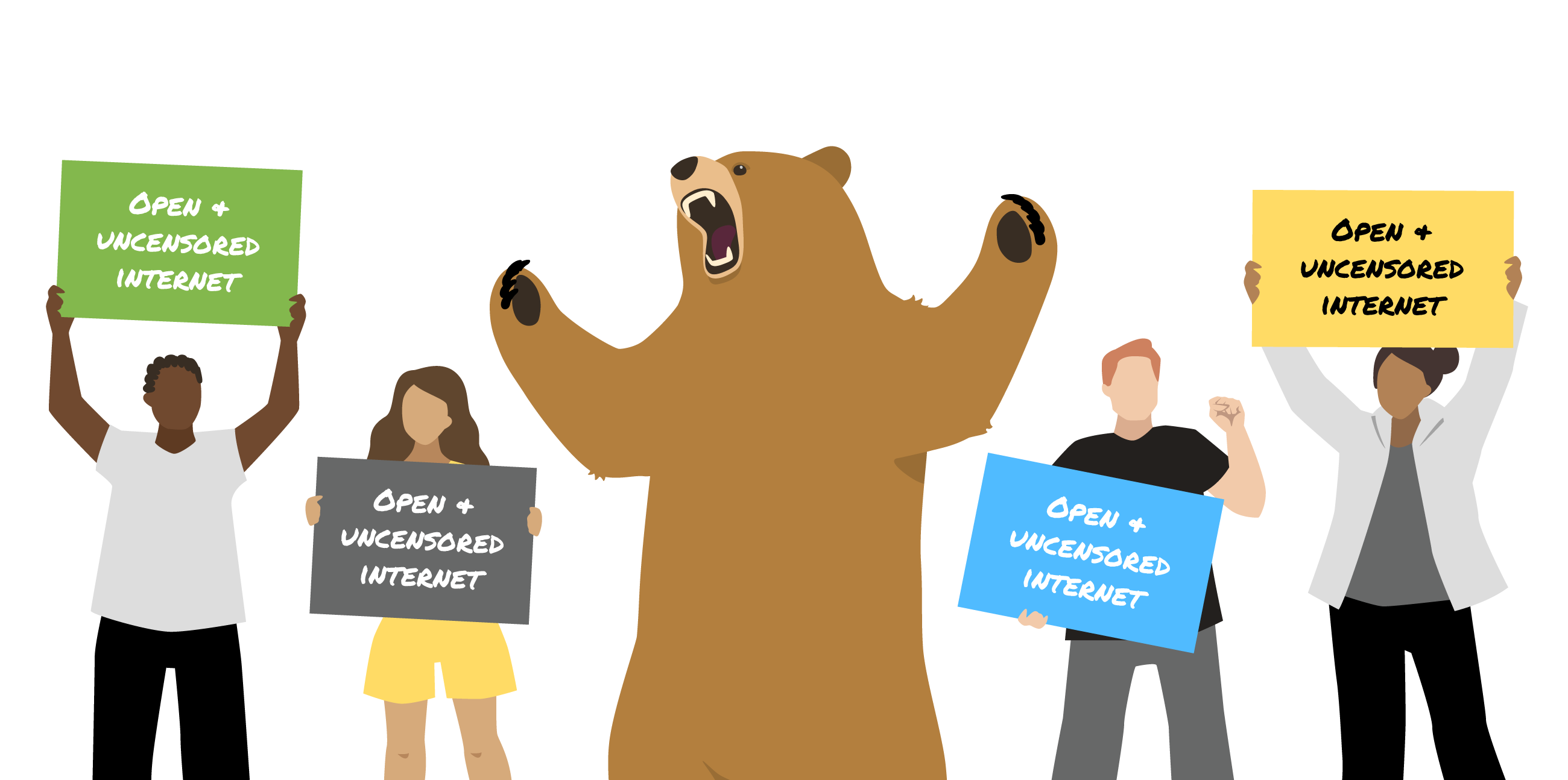Growing up With Censorship - TunnelBear Tales
TunnelBear allows users to browse the internet safely without fear of network restrictions or surveillance. We’re exploring what the often abstract concept of censorship looks and feels like for those on the ground experiencing it. Babak Khorramdin AES-256 4096-bit (pseudonym) is a digital rights activist in Iran who told us his story.
Babak’s relationship with censorship began before he was born.
His father was expelled from University and arrested for being a member of the opposition and a political activist. After years of being subjected to torture and a looming death sentence, he was released.
“After his release from prison and his release from death, he was married and I was born,” Babak explains.
Babak learned of this truth when he was a teenager, and has been engaged in activism since. In our conversation, the arrest came up more than once as Babak’s wake-up call to the realities his family faced.
“Civil liberties are very important to me. Digital rights, human rights are very important to me. Internet freedom is very important to me and I fight for it.” Said Babak.
Censorship in Iran is pervasive and leaks into many parts of society. While censorship can be defined in many ways, in Iran it can be described as a system of information restriction that serves the interest of the state.
Independent watchdog Freedom House describes Iran as one of the worst countries in the world for internet freedom. The organization describes that magazines and newspapers face warnings from authorities about which topics they’re permitted to cover and how to do so. Beyond that, many foreign-based websites are filtered, including news outlets and social media sites. Satellite dishes are also illegal, and Persian-language broadcasts from abroad are regularly jammed.
For media that is permitted for distribution, censors limit images of alcoholic beverages, men and women sitting too closely together or touching, closeups of women’s faces, low necklines on shirts, sorcery, and so on.
These acts make it clear that censorship is not just about restricting access to information. The universality of these actions shows that censorship is woven into everyday life in Iran, and has a real physical presence for those living with it.
By contrast, Babak's everyday life is shaped by his rejection of these limits. “The Iranian regime [...] does not tolerate hearing the opposite voice. We have a secret life on the internet.” He said of his peers.
Babak uses VPN to download Iranian women’s music from abroad, he prepares otherwise banned alcoholic beverages through accessing online tutorials, he organizes underground DJ parties for young folk to gather with their partners and drink and dance, and he often accesses media outlets that are critical of the government.
“If there is no VPN to hide [behind] in Iran, it means [my day to day] life is not going on.”
Babak added that he also attends protests to show his support for progressive movements in the country.
These days, Babak runs a family business with his father installing satellite dishes in people’s homes. Given that satellite dishes are banned in Iran, the equipment needs to be smuggled into the country.
Babak also helps those in his community install VPN software to bypass censorship. He explained that networking is a huge part of this form of digital activism. “In the real world, I install VPN for friends, family and acquaintances on their phones. Then, if someone from [these interactions] introduces me to IT work, I’ll go install VPN there. In the virtual world, including social media sites, I help the opponents of the regime to install secure VPN. I also look for opponents of the regime online and volunteer to help if needed.”
There is a real camaraderie between Babak, those he helps, and fellow activists in the community. In order for such a tight knit network to continue to function, everyone involved needs to trust it. Babak’s main point of trust in a VPN provider rests in their security policies and procedures.
“When choosing a VPN, security is the main thing I look for.” He continued, “I always read the company’s privacy policy...VPN must not store logs, and their services should comply with regional privacy laws."
Babak’s commitment shows that above all, the safety and privacy of his own life and that of his peers comes first.
We asked Babak if he ever fears for his physical safety given his passions, and he told us that he suffers from anxious thoughts about what could happen if he was found out, and this has been an ongoing struggle for him.
"Let me tell you some bitter memories. When I was a student at University, I invited my girlfriend to our University. Then when she arrived and I saw her, I held her hand, and because of that I was almost expelled.”
Babak continued, “I myself was once arrested by the security forces of the Ministry of Intelligence ... I had the chance to escape, but my friends were imprisoned.”
The above examples point to the physical risk and emotional toll that both self expression and activism can take, especially when like Babak, your surroundings are much more restrictive than your own passion.
These physical threats have led Babak to seek solace in digital spaces. He continues to rally behind causes that are important to him and look for alternative ways to promote free expression among his community. “Digital security tools help protect the lives of people who criticize the regime, and this is very important to me.”
Babak is an example of the lengths someone will go to when they’re in places where free expression is a high risk, high reward luxury. The reality for Babak and many in similar situations is that staying safe online is a defence against physical danger in the real world.
If you’d like to dig deeper into the real-world impact of online censorship in Iran, the following resources are a great place to start:
IFEX - Iran at a glance
Iran Primer Report
PEN International latest news on Iran

